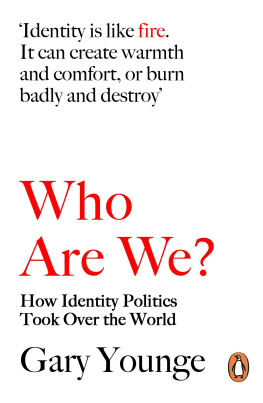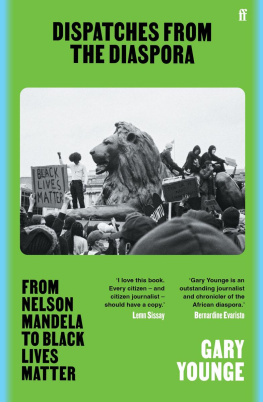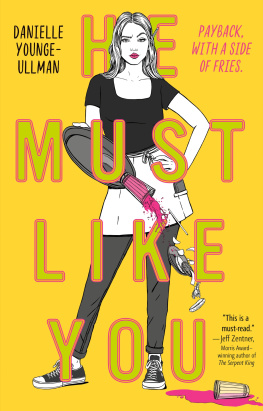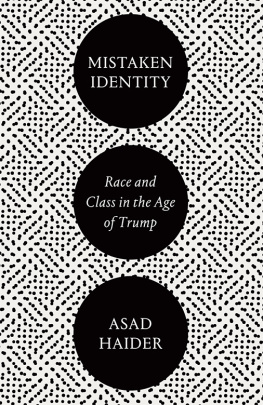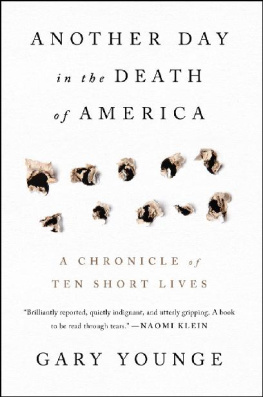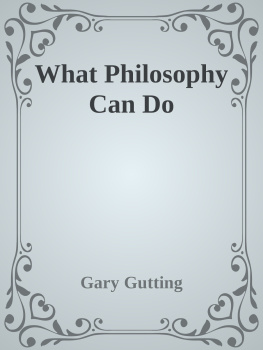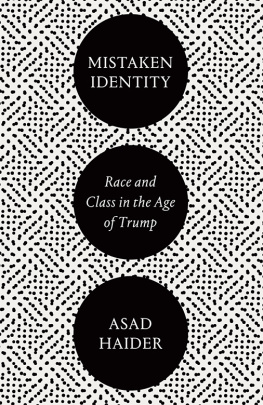Gary Younge
WHO ARE WE?
How Identity Politics Took Over the World

PENGUIN BOOKS
UK | USA | Canada | Ireland | Australia
New Zealand | India | South Africa
Penguin Books is part of the Penguin Random House group of companies whose addresses can be found at global.penguinrandomhouse.com.

First published by Viking in 2010
Published in Penguin Books 2011
Reissued with a new introduction 2020
Copyright Gary Younge, 2010, 2020
The moral right of the author has been asserted
ISBN: 978-0-241-99158-9
This ebook is copyright material and must not be copied, reproduced, transferred, distributed, leased, licensed or publicly performed or used in any way except as specifically permitted in writing by the publishers, as allowed under the terms and conditions under which it was purchased or as strictly permitted by applicable copyright law. Any unauthorized distribution or use of this text may be a direct infringement of the authors and publishers rights and those responsible may be liable in law accordingly.
For Tara and Osceola with love
No man is an Island,
Entire of itself;
Each is a piece of the Continent,
A part of the main;
If a clod be washed away by the sea,
Europe is the less,
As well as if a promontory were,
As well as if a manor of thy friends
Or of thine own were.
Any mans death diminishes me,
Because I am involved in Mankind.
Therefore, send not to know
For whom the bell tolls;
It tolls for thee.
John Donne

1. Me, Myself, I
A political identity in ten parts
Every human being at every stage of history is born into a society and from his earliest years is moulded by that society. Both language and environment help to determine the character of his thought; his earliest ideas come to him from others. The individual apart from society would be both speechless and mindless.
E. H. Carr, Society and Individual
Everybody has a story. Not, for most of us, a grand overarching narrative that draws together the various strands of our life into one neat, consistent thread but a collection of unique, discrete and occasionally contradictory chapters that come together only in the telling. Few of these tales belong to us entirely. We arrive in the middle of a random variety of stories and then set about weaving some together and discarding others in a bid to write our own. I inherit from the past of my family, my city, my tribe, my nation a variety of debts, inheritances, rightful expectations and obligations, writes Alasdair MacIntyre in After Virtue. I am born with a past; and to try to cut myself off from that past is to deform my present relationships. The possession of an historical identity and the possession of a social identity coincide.
Either way, it is through the prism of these vignettes that we frame our take on the world. Facts speak only when the historian calls on them, wrote E. H. Carr in his landmark work, What is History? It is he who decides which facts to give the floor and in what order or context. It is the historian who has decided for his own reasons that Caesars crossing of that petty stream, the Rubicon, is a fact of history, whereas the crossing of the Rubicon by millions of other people before or since interests nobody at all. What is true for the historian is true for all writers. We have a decision about which events will influence us and how, but we rarely get to choose the events themselves. Refusing to recognize your influences is not the same as not having them. It simply disables you from interrogating them to find out why and how they have had the effect they have. The facts are there. But these are stories. And while I didnt write them all myself, I do own them.
i. 19689: Hitchin
Like everybody, I am a product of my time and place. The time was turbulent. In the period between when I was conceived and when I was born, Martin Luther King was assassinated; US president Lyndon Johnson signed the Civil Rights Act; Enoch Powell delivered his Rivers of Blood speech; French students took over the streets and almost took down the government; Robert Kennedy was assassinated; the Kremlin sent troops into Prague; Rupert Murdoch bought the most popular Sunday newspaper in Britain, the News of the World; police clashed with anti-war protesters at the Democratic party convention in Chicago; 150 women protested at the Miss America pageant in Atlantic City; the Marylebone Cricket Club cancelled its tour to South Africa because the apartheid regime refused to accept Basil DOliveira, a Cape Coloured, as part of the team; France exploded its first H-bomb; the Mexican government massacred more than a hundred students in Mexico City; the Royal Ulster Constabulary batoned civil rights protesters in Derry seeking better housing and ran amok on the citys Bogside; Tommy Smith and John Carlos delivered a Black Power salute from the Olympic podium in Mexico City; students and Black Power activists rioted in Jamaica over the banning of lecturer Walter Rodney from the island; Swaziland and Equatorial Guinea declared their independence; Richard Nixon was elected president; Britain passed a new race relations act; and Yale University announced it would accept women.
The place was sedate. I was born in Hitchin, thirty-five miles north of London, and raised in nearby Stevenage. More of a satellite town than a suburb, it was created primarily to house Londoners bombed out of their slums during the war. A new town in an old country. A working-class town in a class-ridden society. A black family in a white town. Nominally Christian and effectively godless. An immigrant family in a town where almost no one was native.
My parents were teenage sweethearts who arrived separately in London from Barbados in the early sixties, at the tail end of post-war migration. Britain sent for labour, but people arrived. They came to work and ended up living. My parents already had two boys by the time they got to Stevenage, which, if not a great place to raise a family, was then, at the very least, not a bad one. And for my immediate family, these were good times. Probably the best. Two parents, both working, two boys aged three and four (I was the third) and a three-bedroomed council house with a garden front and back.
You do not choose to be a son or a daughter, argues philosopher and cultural theorist Kwame Anthony Appiah in The Ethics of Identity, a Serb or a Bosnian; a Korean or an Mbuti In all sorts of ways, our identities are neither wholly scripted for us nor wholly scripted by us.
Many struggle with the idea that they belong to groups they never asked to join. Their reticence, in this regard, is both understandable and unsustainable. For some, these evasions are easier than for others. But whether we claim them selectively or not, our identities have a habit of sticking with us. I was named after Gary Sobers a Barbadian and one of the most famous cricketers of his era. Only history could make sense of how I came to be born in that place, in that time, with that name. Only I can make sense of the rest.

